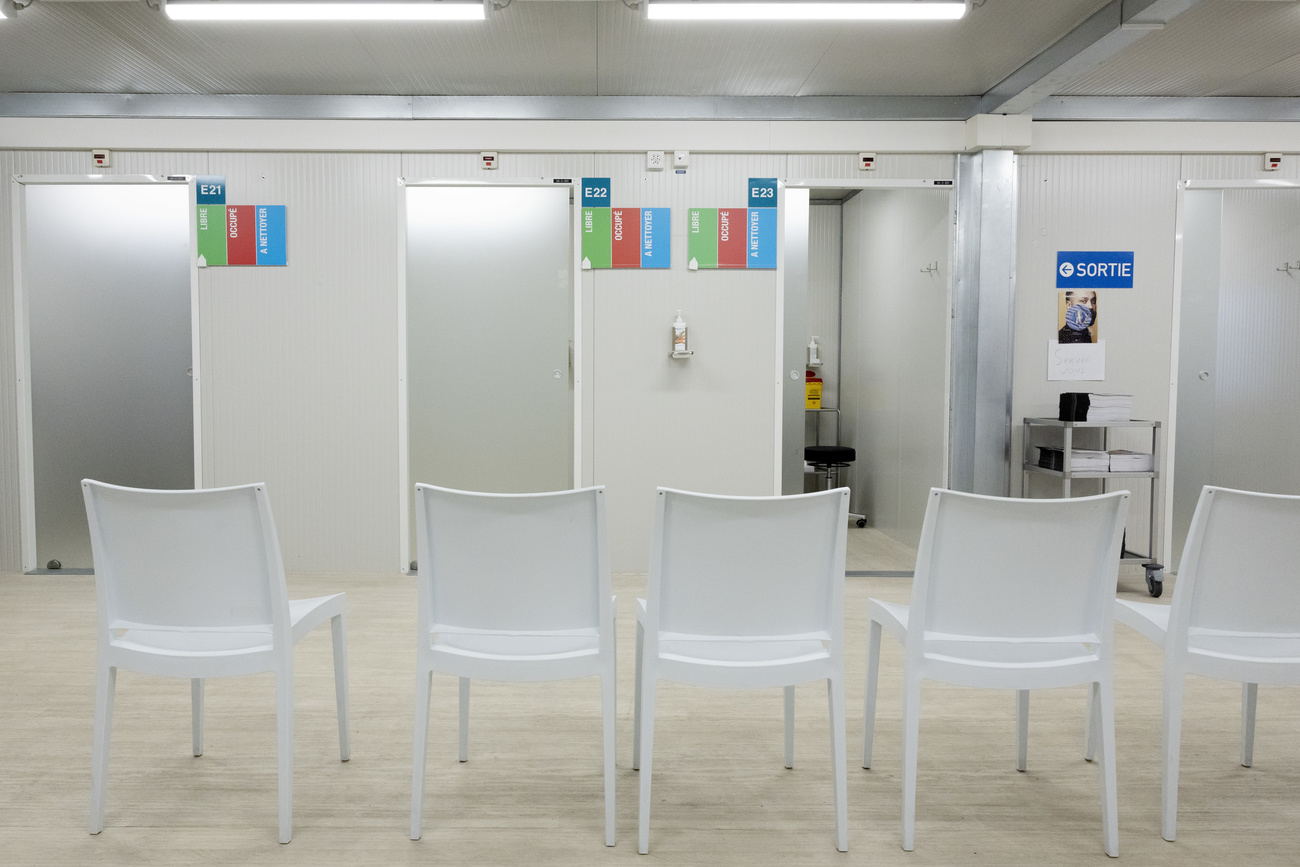

Switzerland Today
Greetings from Bern!
From albino tortoises to Schadenfreude at seeing expats’ paradise turn into a nightmare. Here are the latest news and stories from Switzerland on Friday.

In the news: An albino Galapagos giant tortoise – the first to be born and kept in captivity – made his/her first public appearance today at a zoo in western Switzerland.
- It was one of two tortoises born last month at the Tropiquarium in the town of Servion as part of a programme to preserve the endangered species. The success rate of mating is only around 2%-3% for this species. Baby turtles weigh about 50g at birth and fit in the palm of the hand. Albinism is rare in tortoises – one in 100,000 births – compared with one in 20,000 for humans.
- The impact of global warming in the Alps can be seen from space, according to Swiss scientists. The most marked change is a pronounced and widespread increase in vegetation at high altitudes. In addition snow cover has decreased significantly. This has implications for the supply of drinking water in mountain regions.
- Households and businesses face much higher prices next year, the Federal Electricity Commission has warned. It estimates that for a five-room household that uses 4,500 kilowatt hours of power a year, this would mean electricity bills would go up by around CHF180 ($188) a year.

Why are television programmes about people trying to start a new life for themselves on the other side of the world so popular? Is it because we like seeing people struggle and fail?
That’s not my theory – it was put forward by journalist Moritz Marthaler, writing in the Tages-Anzeiger newspaperExternal link. He notes that during the Covid pandemic, Auf und davonExternal link (Up and away), a programme on Swiss public television, SRF, in which couples or families leave Switzerland to fulfil a dream often thousands of miles away, was the most successful documentary series in Switzerland, with a market share of almost 38%.
“The longing to emigrate is as old as our country,” Marthaler writes. “Novo Friburgo, New Berne, Locarno Springs – in the 19th century, hunger and a lack of prospects drove thousands of Swiss settlers to faraway places. What remains of courage born of desperation 200 years later is courage at most. Today, people no longer leave because they have to – they leave because they want to.”
Some 780,000 Swiss citizens – almost 10% of the population – live abroad. Some of them have used their life savings to open a B&B in the Caribbean or run a koala sanctuary in Australia or whatever. “The fact that television has been accompanying them in this for over ten years is not a brilliant idea, but it’s a success,” Marthaler admits, before warning that not all stories have a happy ending.
“Sometimes the authorities are more stubborn and construction more expensive than expected. And that’s precisely where the appeal of the programme lies, where the voyeurism kicks in. We want to mock the clunky accent of the emigrants, feel their suppressed homesickness, see them invest their savings in the ramshackle café. From a safe distance we’re amused when the oh-so-brave Swiss is sold a lame camel in Morocco. We swallow our envy at the break with boring everyday life. All we want to do is watch someone reinvent themselves – as long as one or two of them fail miserably.”
What do you think?
More

In compliance with the JTI standards
More: SWI swissinfo.ch certified by the Journalism Trust Initiative


































